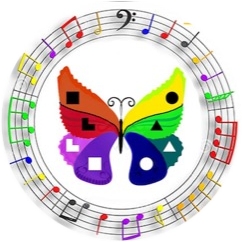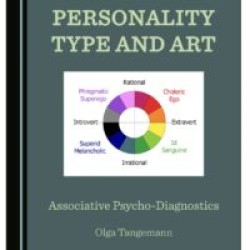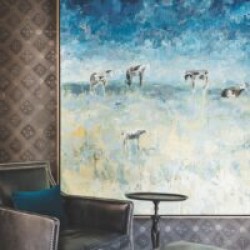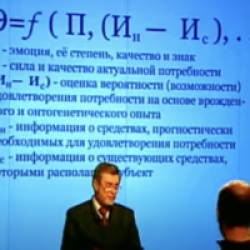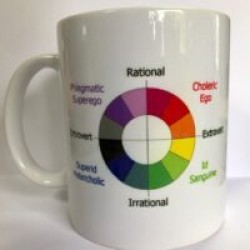Rationality – irrationality
Irrational types – they quite easily adapt to changes in circumstances, are easy-going, usually act in spontaneous manner or arrange things at the last moment. Irrational type do plan as well but they can not stick to the plan. This type has the ability to grasp sudden change in situation and flexibly alter it to their needs. Irrationals may take part in several activities at once and do not complete them. Tend to work according to the mood. If the emotional state corresponds to the task, they can do the job in a few days.
Rational type – they prefer to plan their actions and tend to stick to their short and long term plans. Rational type does not admire sudden change because he finds it difficult to act appropriate to the plan in new circumstances. This type does not like to rush and prefer to prepare for the upcoming events in advance. Rationals do not like to change their decisions and plans so often. They tend to deliver the results for activities they choose, and do not start a new one, until they finish the previous one. This type is not disposed to engage in several projects at once. His work is typically well organized in time and sequent instances. Rational type’s performance is almost regardless of the mood.
Extraversion – Introversion
Extraverts are usually active and energetic people. Their attention and energy are directed to the active interaction with the outside world and their acting is under the inspiration of the external situation. This type is described as gregarious, sociable, talkative, initiative. They easily build relations with new people and love public attention. They feel comfortable speaking in front of an audience and get bored alone. Extraverts are characterized by a day-to-day need of talking about experiences and interesting information. They usually have a loud, noticeable speech assisted by facial expressions and gestures.
Introverts are usually reserved people mostly quiet, shy, self-restraint, self-analysing. Their attention and energy are directed into themselves, their thoughts, behaviour, and insights. Their social energy is weaker then extroverts, that is reflected in a quiet voice, and being sensitive regarding loud noises and other external disturbances. Introvert type does not like too much attention and to stand out from the crowd, and therefore they dress in conservative manner. They prefer to communicate with one or two friends and feel awkward in front of a large audience. Do not feel the constant need to communicate and appreciate the time alone because always find what to do. Introverts movements, facial expressions and gestures are calmer and slower then extraverts’. Slowly roll their sleeves up for the work, and slowly switch from one task to another.
Statics – Dynamics
Static type – for these people it is easier to perceive the information in the process of taking something as a starting point but not in the process of constant change. This can be compared with the choosing of a particular perspective or angle of view to the perception of the moment. Stopping the motion of time helps static type to identify what was going on for a certain period of time, which can be defined as a stable or unchanged period. They often prefer paintings of motionless objects and they use fewer verbs that are commonly used to describe the processes of development and change. Regarding to colours and musical preferences this type of people choose equilibrium and balance, lack of striking contrasts, stability and recurrence of rhythms. The most common types of temperaments among static types are phlegmatic and sanguine.
Dynamic type – these people perceive the world and situations not by series of static frames or images but as moving reel of film or everlasting action. In this kind of perception the facts about the moments of time span are less noticeable then interaction of objects in continuous time. Dynamics typically use a large numbers of verbs to describe the situation in development and change. In art and music they usually prefer contrasting colour range, changing or growing intensity rhythms, melodies with ups and downs, complex compositions with culmination that brings emotional experience.
Logics – Ethics
Logical types base their opinion on logics and cause – effect; they strive for maximum objectivity and look for consistent patterns in everything and everywhere. Their natural desire is to systematize and organize the world around them: information, knowledge, surrounding objects. They explain themselves referring to facts, charts, tables, and classification. Their mind has clear precedence over the feelings. They are easier to learn technical subjects then humanities. Their language is usually scientifically dry and formal. Logical types rarely express their feelings in words and usually avoid the demonstration of strong emotions in public. At the same time they are cautious in dealing with people. Sometimes they do not understand how other people feel about them, so they prefer to be straightforward about feelings or avoid this subject all together. Logical types do not always know how to behave in a situation where they need to show compassion and provide emotional support. It is easier for them to express their feelings and emotions with close people who they know well. Logical types poorly distinguishes and assess the tone of voice, facial expressions and gestures, and everything that carries additional information about the people’s intentions and desires.
Ethical types are emotional people, regardless of whether they express their emotions to the audience or cleverly hide them. They adequately assess the emotional states of others and their own and have a good understanding of the motives of people. Ethical types have good conflict resolution skill, are able find the right words and an individual approach to each person. World of people and human relationships seems much more interesting, closer and clearer for them than working with machinery, figures, charts or computer programs. Ethical types prefer choosing work associated directly with the people (doctors, teachers, psychologists, sales people, lawyers, translators , journalists etc.) In the school or college they are usually better in humanities than technical sciences. In solving problems they may find difficult to look at the situation objectively, to reason and making decisions impartially with the reference to the facts and disregarding their own and others’ feelings. Sometimes they do not listen to the voice of mind and commit rash acts, behave inconsistently or illogical.
Sensing – Intuition
Sensing types are practical, traditional people, standing firmly on the ground. About them you could say: a bird in the hand is worth two in the bush. They prefer not to think much about the future, focusing on the problems of the present and paying attention to details. They sometimes are characterized by impulsive acts, with no regards to further developments and consequences. Sensing types like certainty and rely more on experience rather than on their intuition and predictions. They know better their body, pay more attention to physical needs, hygiene, nutrition and appearance. They take care of their own health and of their loved ones with pleasure. They love to cook, know how to arrange their personal space, and how to create cosiness in the house. Sensing types love manual work, shopping, gardening and horticulture. They collect, love and cherish material goods. It could be difficult for them to part with objects generally even if they do not use them. All sensing types are interested in acquisitions, sales and increase of their material well-being. Their thoughts and conversations are usually associated with the current events, day routine or with events of recent time. Their dreams have specific and mundane nature. Some sensing types hardly ever dream.
Intuitive types are more cautious in their actions, they do not like to rush with decision-making. They prefer to measure thrice and cut only once. Intuitive types love abstract ideas, the world of phantasy and creative thinking . Their thinking style is characterised by some elements of uncertainty, ingenuity and a high degree of generalisation. Among intuitive types are many dreamers, visionaries and enthusiasts. They are attracted by everything what is new, unusual and extraordinary, depending on the area of interest. Intuitive types consider the subject from different perspectives. They usually see a number of solutions to the problem and know intuitively which one to choose. These people are usually curious and inventive. They may have many interests but but their interests are fickle. Some intuitive types spend a lot of time in doubts and day dreaming while the others find problem solving easy and always find the way out from a tricky situation. They also have an ability to be in the right place at the right time or to. Their thoughts and conversations are usually associated with memories of the past or with aspirations for the future. They frequently leap and deviate from discussion topic, coming back and forwards. Intuitive types pay naturally less attention to detail and everything what is to do with sensing experience (sound, colour, shape, taste etc.). It is more difficult for them to monitor their own health, to create cosiness at home or choose the suitable clothing.
